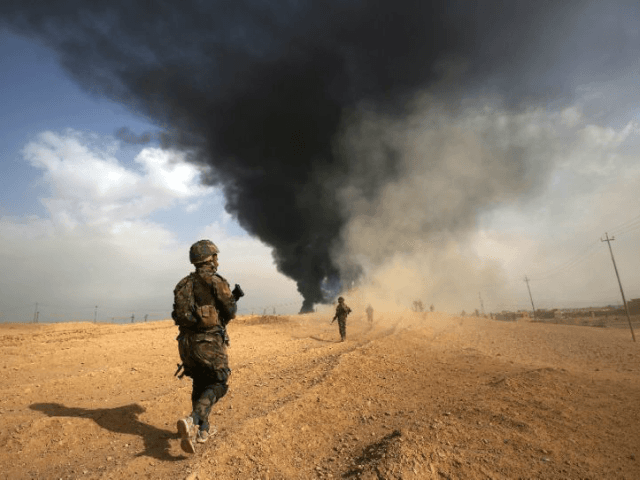Iraqi Prime Minister Adel Abdul Madhi told reporters on Sunday that U.S. withdrawal from Syria will create “a lot of complications,” so it might be necessary for Iraq to take a stronger hand against Syrian terrorist groups to protect its own security interests.
“If any negative development takes place in Syria, it will affect us. We have a 600-kilometer border with Syria and Daesh [the Islamic State] is there,” Madhi told reporters, using another name for the Islamic State.
The prime minister said a delegation of top security officials from Baghdad recently visited Damascus to discuss the situation with Syrian President Bashar al-Assad. He said Iraq seeks a more active role in Syria than launching occasional airstrikes against Islamic State fighters near the border, although he did not specify exactly what additional measures Iraq wants to take.
Iraqi F-16 warplanes bombed the Syrian province of Deir al-Zor on Monday, reportedly striking a gathering of 30 ISIS leaders near the village of al-Sousa. The Iraqi military said it was able to destroy the building the ISIS leaders were meeting in but offered no estimate of how many were killed.
The Iraqi strike was said to be the first action conducted under a new understanding reached with Assad over the weekend in which Baghdad can hit ISIS positions in Syria without waiting for permission from Damascus. Mahdi sent a letter to Assad on Sunday proposing further cooperation in “fighting terrorism.”
The Military Times saw the stronger partnership between Baghdad and Damascus as a sign of Iran’s growing influence in the region since both countries are allies of Iran and Assad seems interested in taking his relationship with the ayatollahs to the next level:
In Tehran, Iran and Syria signed Sunday a long-term strategic and economic agreement as the war winds down in Syria where Iran and Russia were the main backers of Assad’s government since the crisis began nearly eight years ago.
Syria’s SANA news agency quoted Syrian Minister of Economy and Foreign Trade Mohammed Samer al-Khalil, who signed the agreement, as saying that the deal includes “full cooperation on the financial and banking levels.” He added that this would allow Iranian companies to be present through investments in Syria.
Some of these diplomatic maneuvers are an inevitable consequence of Assad consolidating his position by winning the long and bloody Syrian civil war. Every neighboring country is making its peace with this reality and looking for a piece of the $200 billion reconstruction effort previewed by the Syrian government.
Despite near-universal condemnation of the Islamic State, not every actor in the region is truly interested in destroying what remains of the “caliphate,” but Syria and Iraq certainly are. The U.S. policy gamble, made fairly explicit by President Donald Trump in his tweets, is that Syria and its neighbors will do the brutal work of finishing off ISIS if the U.S. gets out of the way.
Withdrawing American troops from the area will take American fingerprints off whatever happens next, divert the attention of international media organizations that are primarily interested in reporting on collateral damage inflicted by the U.S. and its allies, and remove American witnesses to whatever deeds Assad and his neighbors feel are necessary to satisfy their security concerns.
For a demonstration of this principle in action, take a look at reports of Iraq’s first “fire at will” airstrike against ISIS leaders in Syria and search for a single mention of civilian casualties, or a word of concern for who else might have been in the building where those ISIS leaders were meeting.

COMMENTS
Please let us know if you're having issues with commenting.